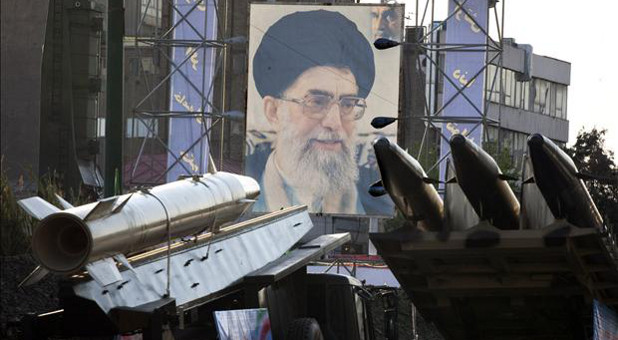We Can’t Trust Iran’s Good Intentions
C.S. Lewis once famously declared experience to be “that most brutal of teachers. But you learn, my God, do you learn.” The bipartisan Iran sanctions bill—sponsored by 13 Democrats and 13 Republicans—is the product of bitter experience.
First, we have 34 years of experience with jihadist Iran and know it is and has been actively working to kill as many Americans and Israelis as it can without courting open war. Since the hostage crisis in 1979, Iran has killed Americans in Lebanon, Saudi Arabia, Iraq and Afghanistan. Its Quds force directly engaged in Iraq.
My own deployment took place largely within sight of Iran, and I know firsthand its support for various branches of the Iraqi insurgency. The best way to describe Iran’s posture toward the United States is prolonged, low-intensity warfare.
In other words, we can’t trust Iran’s good intentions.
Second, we now have almost five full years of experience with the Obama administration’s foreign policy—a policy that is most charitably described as pathetically naïve in its dealings with Islamic supremacists. The scorecard isn’t pretty.
The administration has backed the church-burning Muslim Brotherhood in Egypt, an al-Qaeda-infested insurgency in Syria and motley militias in Libya that soon morphed into a force that attacked and killed four Americans left vulnerable in part because of the administration’s wishful thinking. And now this same administration has made a deal with jihadist Iran that rests on Iranian good faith.
In other words, we can’t trust the administration’s competence.
Cognizant of these truths, what does this legislation do? It reins in both Iran and the Obama administration:
The bill calls for “prospective sanctions” that go into effect if Tehran violates the nuclear deal it reached with world powers last month or lets it expire without a long-term accord.
The measures include a global boycott on Iranian oil exports within one year and the blacklisting of Iran’s mining, engineering and construction industries. The goal, according to supporters, is to strengthen the negotiating leverage of the Obama administration as it seeks to pressure Iran into a comprehensive agreement next year that would eliminate the risk of the Islamic republic developing nuclear weapons.
Under the bill, the administration would have to certify to Congress every 30 days Iran’s adherence to the interim pact. Without that certification, the legislation would reimpose all sanctions that have been eased and put in place the new restrictions. Foreign companies and banks violating the bans would be barred from doing business in the United States.
These provisions are necessary and prudent. So, naturally, the administration has issued a veto threat.
If Iran builds a nuclear bomb, then nuclear war becomes far more possible and the world far more dangerous. Iran without a bomb is dangerous enough, but it is incapable of genocide against Israel or the United States.
With stakes this high, now is not the time for trust.














































